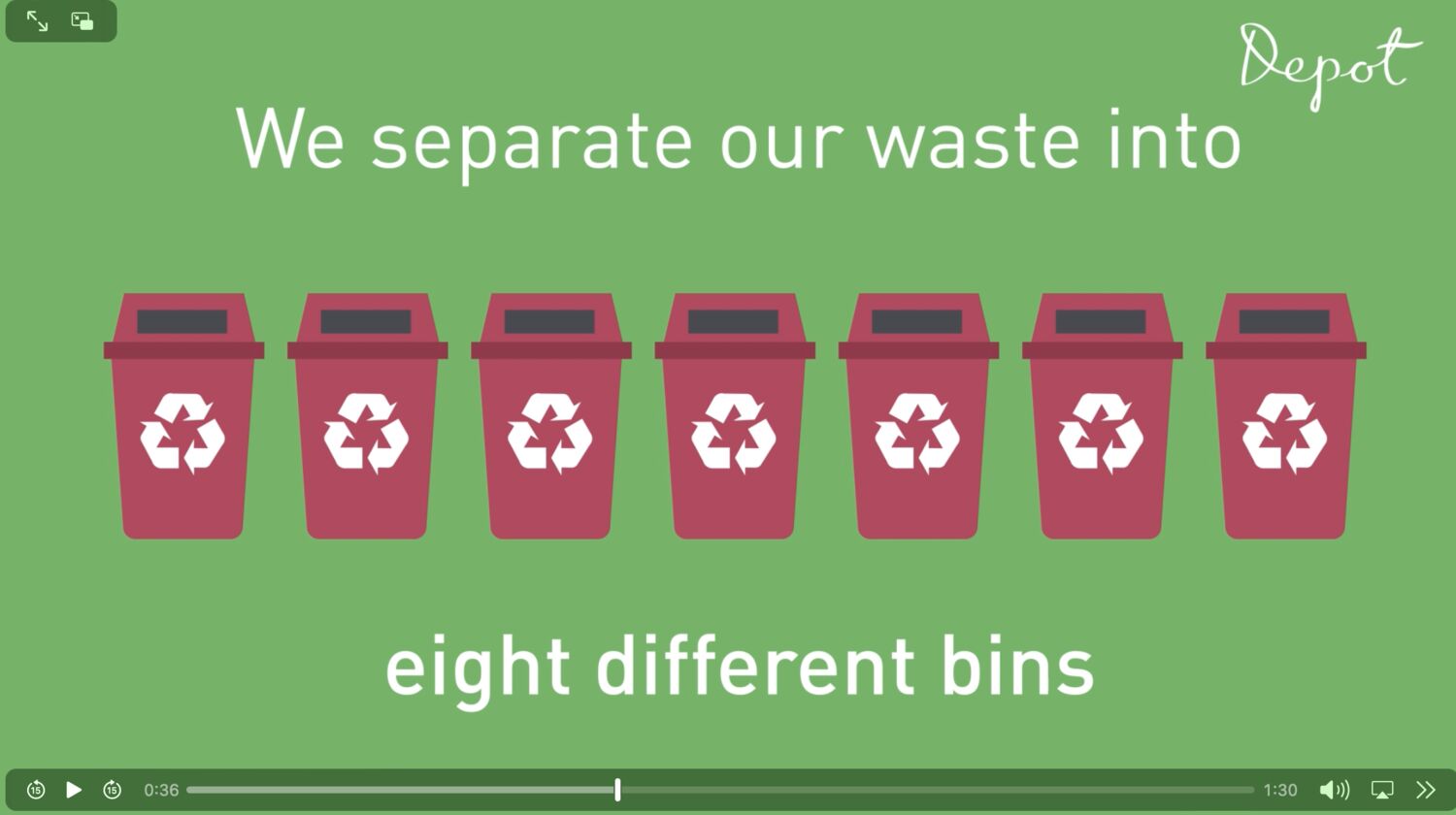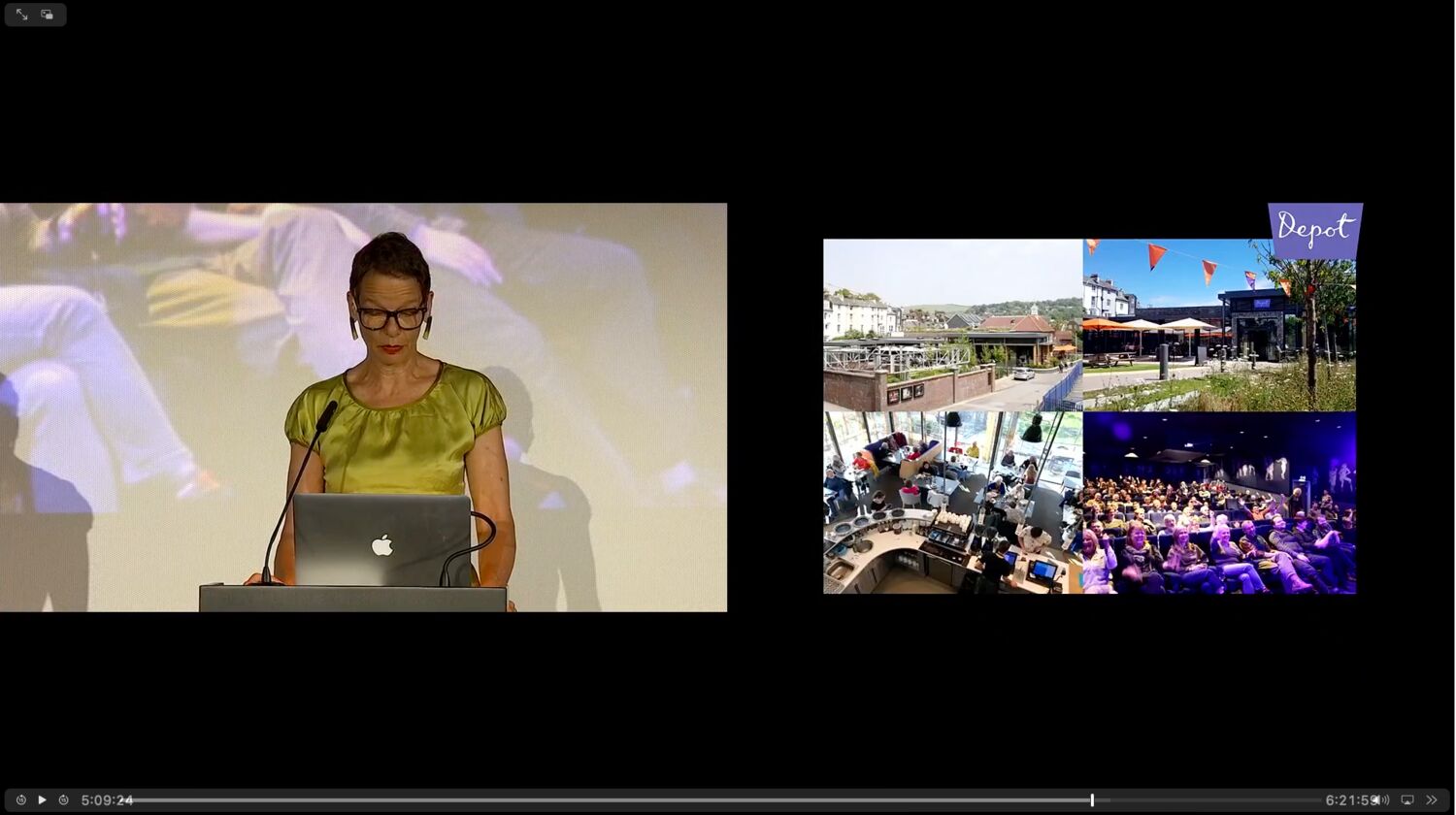8 Steps to Transform Cinema Spaces for a Greener Future
• Space
In the heart of Berlin, at the Cinema Vision 2030 Conference in 2022, cinema enthusiasts, industry experts, and eco-conscious leaders gathered to discuss the future of cinema.
Carmen Sipjen, director and programmer at Depot Cinema and Kitchen bar, was at the forefront of a panel discussion about green cinema.
Get inspired by 8 steps to transform your cinema inspired by insights of the Winners of the ‘Green Screen‘ award at The Big Screen Awards 2022.
The best way to start
You are just starting to become a more sustainable cinema? We encourage you to reach out for others to help you get a start, such as:
- National projects, f.e. Kino:Natürlich
- Local networks, f.e. CICAE
- Other cinemas, f.e. Depot Cinema and Kitchen bar
- Independent local consultants
The next 8 steps should inspire you to go your way to a climate-neutral cinema.
1. Optimising energy efficiency
Sustainability should encompass every facet of the cinema experience, from the screening room to the concessions. One of the fundamental pillars of creating a sustainable cinema space is optimizing energy efficiency.
According to Carmen Sipjen, by upgrading installations and incorporating downtime measures, cinemas can significantly reduce their carbon footprint while still providing a top-notch movie-watching experience.
“ [We had] Co2 emission savings of 289 tons compared to our baseline of the year 2018. Including all greenhouse gases, the UK's average footprint sits at around 13 tons per person per year. So the carbon footprint saving would be equivalent to what 24 People use on average in the UK in one year. - Carmen Sipjen ”
2. Sustainable Procurement Practices
Carmen Sipjen emphasizes, sourcing products locally and prioritizing sustainable procurement practices are crucial steps towards creating a greener cinema.
By offering local products and beverages, theaters can support their communities and minimize the environmental impact associated with long-distance shipping.
3. Dedicate Ressources
To drive sustainability initiatives forward, hiring a Sustainability Manager can be essential. This commitment to sustainability ensures that eco-friendly practices remain at the forefront of the cinema's operations - Depot Cinema and Kitchen bar shows how it's done.
The tasks of a Sustainability Manager can be:
- Policy, monitoring and action plan
- Best practises and product
- green communications
- engagement
- networks
- inspire others
Carmen emphasized that every business decision should take into account its environmental impact. From choosing suppliers to selecting building materials, sustainability should always be a consideration.
4. Accreditation and Certification
Carmen highlighted the importance of pursuing accreditation and certification programs that validate a cinema's commitment to sustainability.
Recognitions are important, not only to strengthen the cinema's reputation but also serve as a testament to their dedication to the environment.
Cinemas should carefully research and select certifications that align with their sustainability goals and values, for example:
- ISO (International Organization for Standardization): ISO offers several sustainability-related standards, including ISO 14001 for environmental management and ISO 26000 for social responsibility.
- Cradle to Cradle (C2C) Certification: C2C certification evaluates products and materials for their environmental and human health impact, encouraging the design of more sustainable products.
- Carbon Neutral Certification: PAS 2060 is the only internationally recognized guideline on how to achieve carbon-neutral business operations or products.
Please note that the availability of these certifications and the specific criteria they require can vary by region and industry.
5. Waste Management
Effective waste management is a cornerstone of sustainable cinema operations. Implementing comprehensive waste reduction, recycling, and composting programs not only reduces waste sent to landfills but also sets a positive example for patrons and staff.

6. Create Engagement
Engaging both staff and customers is essential for the success of sustainability initiatives. This can be provided by:
- Sustainability training of employees
- Extending education to customers
- Soliciting feedback
- Strategic communication
- Developing strong corporate values
- ...
It is important, that all measures are apporachable and inclusive to all cinema staff and customers.
7. Effective Communication
Transparent communication plays a pivotal role in raising awareness about sustainability efforts. Cinemas can achieve this through various channels, including sustainability newsletters, information on their website, and social media trailers that showcase their eco-friendly initiatives.
8. Innovative Programming
Carmen suggested using thematic programming and discussions as a way to engage audiences in sustainability topics. Hosting events like a Climate Festival can further emphasize the cinema's commitment to environmental responsibility.
Becoming a greener cinema
Carmen Sipjen's insights from the Cinema Vision 2030 Conference shed light on how cinema spaces can evolve into sustainable hubs.
By integrating energy efficiency, sustainable procurement practices, dedicated sustainability management, and effective communication, cinemas can play a significant role in shaping a greener future.
With a commitment to sustainability, these theaters not only entertain but also inspire positive change in their communities and beyond. As the lights dim and the film begins, cinema-goers can feel good knowing that they are part of a more sustainable cinematic experience.
Watch the panel @ Cinema Vision 2030

11.09.2023

Deborah Shirley Cohrs shirleys
Deborah is an expert in digital communication. In the German cinema landscape, she accompanies arthouse cinemas, advises cinema associations, and shares her knowledge in workshops. As an editor, she also writes for the German Ideas Platform "Zurück ins Kino". more from the author


